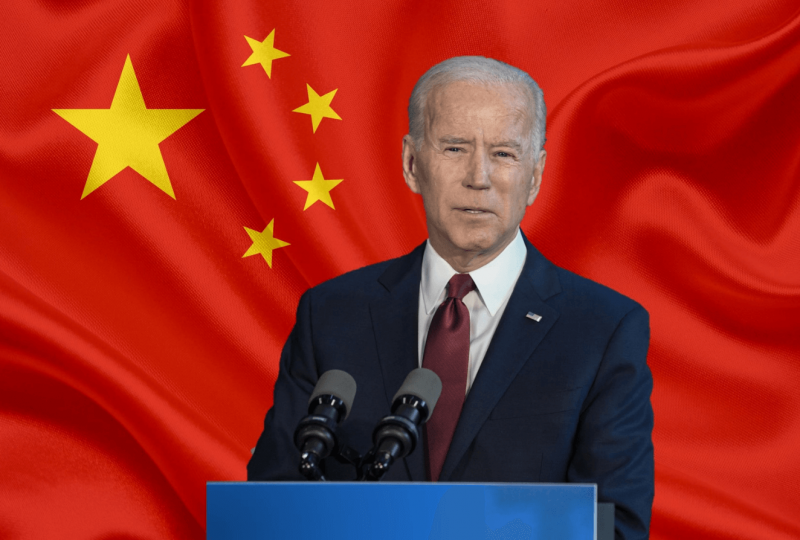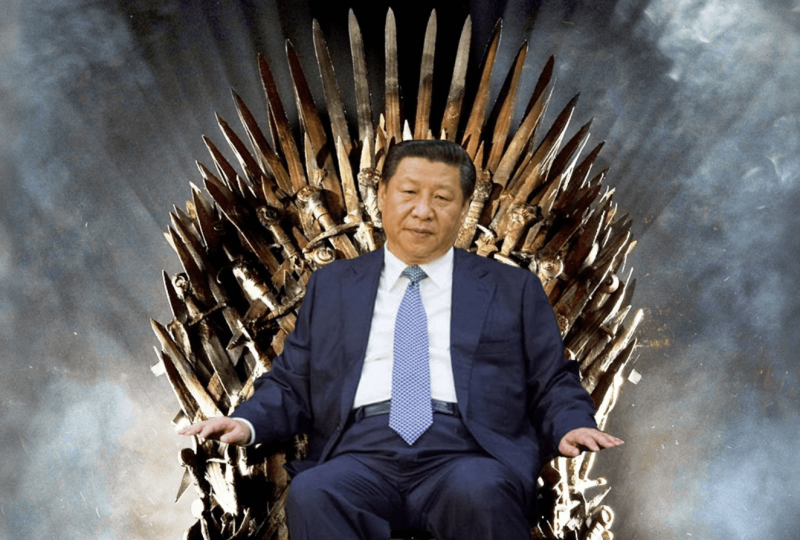Biden’s Plans to Cool Trump’s Trade War with China
Oct 5, 2021

On paper, the Biden administration is maintaining the import tariffs and other protectionist measures placed on China by Donald Trump during his one-term president. But, if China cooperates, Biden might de-escalate Trump's trade battle and pave the way for better ties with the world's second-largest economy.
The Biden administration has unveiled a "new strategy" to China, which looks a lot like Trump's old approach. Biden would maintain Trump's tariffs on approximately $360 billion in Chinese imports and hold China to the 2019 "phase one" trade agreement, which demands China to dramatically boost its purchases of American products. The Biden policy also denounces China's widespread theft of western technology, as well as governmental sponsorship of Chinese megacorporations, which provides them an unfair competitive edge in global markets. Biden may look for new anti-China coalitions to punish China for its abuses, which could be more successful than Trump's stand-alone strategy.
However, none of this comes as a surprise. China's rising belligerence under President Xi Jinping has left China with few allies in both the Democratic and Republican parties, and Biden never indicated he'd overturn Trump tariffs. Trump deserves credit for tackling Chinese trade violations in a way that may have reset US policy toward China for years to come, with no return to previous administrations' more lenient posture.
Exclusions ease the sting of tariffs
However, Biden may be laying the groundwork for off-ramps that may eventually decrease trade barriers between the two nations. Biden plans to reinstate an “exclusion” procedure that ended under Trump and enabled select US importers to request for tariff exemptions from the US government. According to the Government Accounting Office, U.S. importers submitted up to 53,000 exclusion petitions during Trump's presidency. Only about a third of them were granted by the Trump administration, and some of them were temporary exemptions that expired before the process was completed in the closing days of Trump's presidency.
Biden hasn't said how generous his administration's exclusionary policies would be, but if they're employed frequently enough, they might become the rule rather than the exception. China has a similar system in place, with Chinese firms paying higher taxes on U.S. goods in retaliation for Trump's tariffs. Exclusions might allow both countries to soften the impact of tariffs while maintaining them in place technically.
Case-by-case exemptions are terrible policies because they allow the government to prefer certain businesses over others on arbitrary or subjective conditions. However, considering that many economists believe the Trump tariffs damaged the US economy more than they benefited, they may be a necessary evil for Biden. Simply repealing the tariffs would be politically unpalatable, exposing Biden to "soft on China" demagoguery. Exclusions used aggressively might be a way around this.
Recoupling, not decoupling
Any trade liberalization would almost certainly need Chinese concessions. U.S. Trade Representative Katherine Tai said progress with China "will depend on how the dialogue goes" in an Oct. 4 address at the Center for Strategic and International Studies. We'll look at China's performance and have a comprehensive discussion with them, while also expressing our worries about the wider industrial policy mismatch and its implications for our economies.”
“I don't believe that's a realistic outcome,” Tai replied when asked whether the Biden administration intended “decoupling,” or the permanent separation of major supply chains. Perhaps the issue is, “What are the goals we're looking for in a recoupling?”
That is more optimistic rhetoric than anything coming from the Trump administration. During an online discussion on Oct. 5, Tu Xinquan, head of the China Institute for WTO Studies, stated, “Decoupling has been a very significant issue for China.” “Recoupling would be beneficial to the trade relationship between the United States and China. If the exclusion procedure could be begun as quickly as possible, it would be beneficial to both exporters and importers.”
There are still a lot of flash spots. After 30 years of free-for-all capitalism in China, President Xi appears to be rewriting the rules in order to harness even more economic power for the Communist Party's nationalist objectives. China has military ambitions as well, threatening Taiwan openly in recent days and antagonizing other Asian countries on a regular basis. Xi sees China as a world powerhouse comparable to the United States, and he may be unwilling to make the trade concessions that Biden would seek.
On Oct. 4, Tai's statements were mainly ambiguous and noncommittal, and she recognized that trade ties with China may worsen rather than improve. While the Covid epidemic explains some of China's failure to meet purchasing objectives in the 2019 "phase one" contract, China was already behind before Covid. If China is actively sabotaging Trump's 2019 accord, Biden won't be able to do much, if anything, to reduce tensions. Biden isn't the bomb-thrower Trump was, but if China keeps re-lighting the fuse, he won't be able to put it out.




